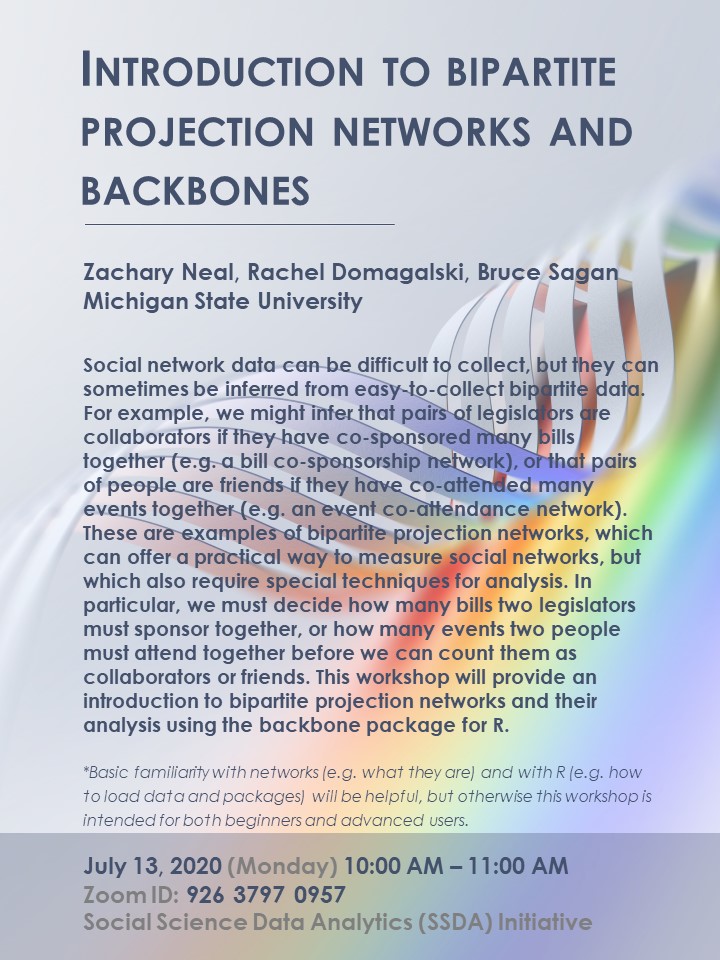Introduction to bipartite projection networks and backbones
Mon, July 13, 2020 10:00 AM - Mon, July 13, 2020 11:00 AM at Zoom
Social network data can be difficult to collect, but they can sometimes be inferred from easy-to-collect bipartite data. For example, we might infer that pairs of legislators are collaborators if they have co-sponsored many bills together (e.g. a bill co-sponsorship network), or that pairs of people are friends if they have co-attended many events together (e.g. an event co-attendance network). These are examples of bipartite projection networks, which can offer a practical way to measure social networks, but which also require special techniques for analysis. In particular, we must decide how many bills two legislators must sponsor together, or how many events two people must attend together before we can count them as collaborators or friends. This workshop will provide an introduction to bipartite projection networks and their analysis using the backbone package for R.
Basic familiarity with networks (e.g. what they are) and with R (e.g. how to load data and packages) will be helpful, but otherwise this workshop is intended for both beginners and advanced users.
- Time: 10A.M. - 11A.M., July 13, 2020 (Monday)
- Registration: RSVP by July 10, 2020 (Friday)
- Zoom: Meeting ID: 926 3797 0957
- Welcome to join our SSDA mailing list!


